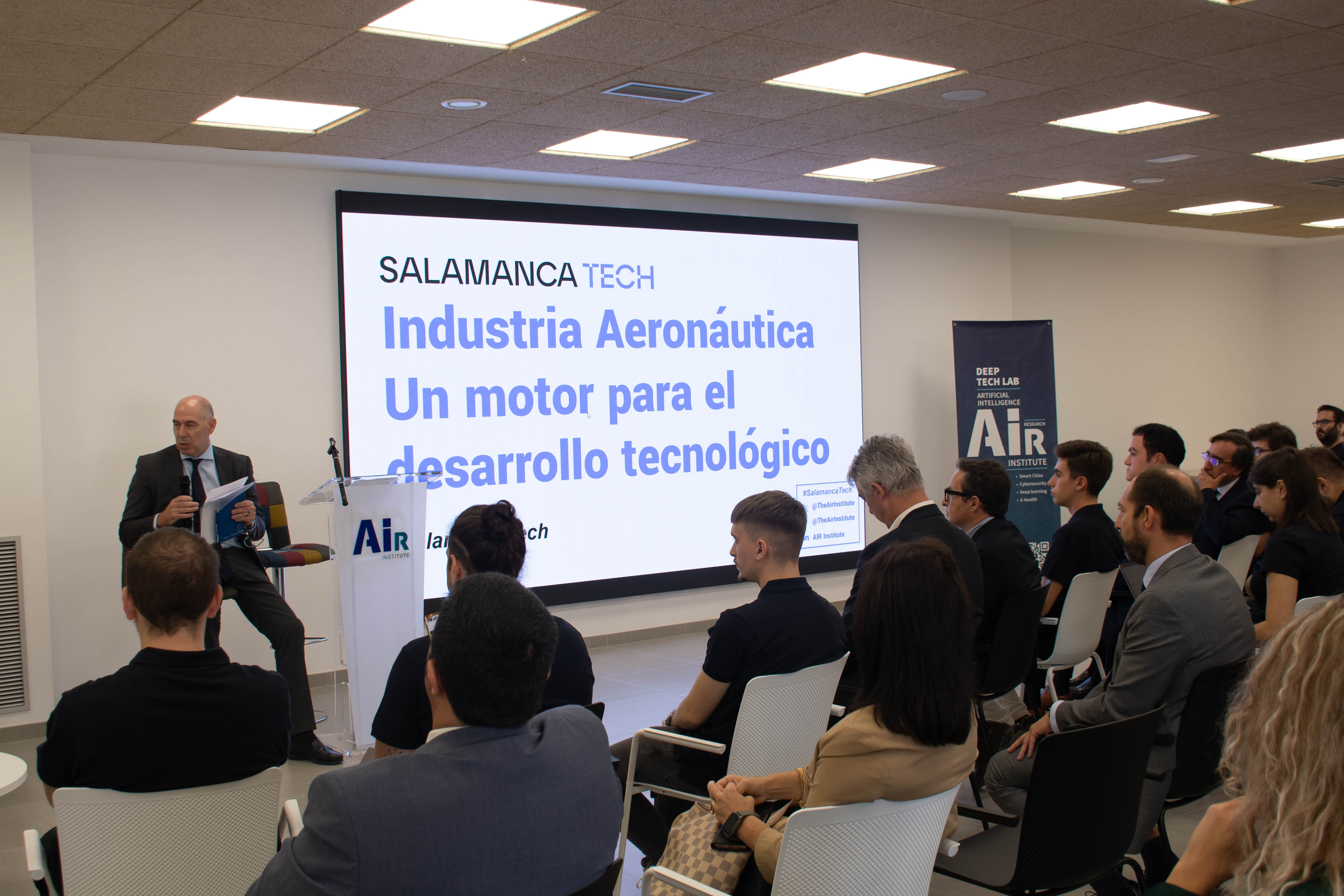Salamanca Tech is committed to the aeronautical industry
Leading experts in aeronautics have met up at a new Salamanca Tech conference; the initiative with which the AIR Institute and the Town Council seek to promote innovation and technological development in Salamanca, to make it a benchmark in innovation, bringing together the pillars of science, sustainability, entrepreneurship, technology, logistics and health.
"The aeronautical industry: an engine for technological development" has been the central theme of this Salamanca Tech conference with the participation of the President of the AIR Institute, Juan Manuel Corchado; Carlos Martín Tobalina, Vice-Minister of Economy and Competitiveness of the Junta de Castilla y León; Bertrand Masson, Vice-President of Airline Sciences - Airbus; Carlos Noriega, Director of Aciturri Tech; Sandra de Lucas, Head of IM Strategy, Worldwide Services and Innovation - Airbus; Jerónimo Vicente Escolano, FTE/USA Test Pilot - Skydweller Aero; and José Alfredo González Ochoa, Business Developer Manager Defence/Aero - CTIngenieros España.
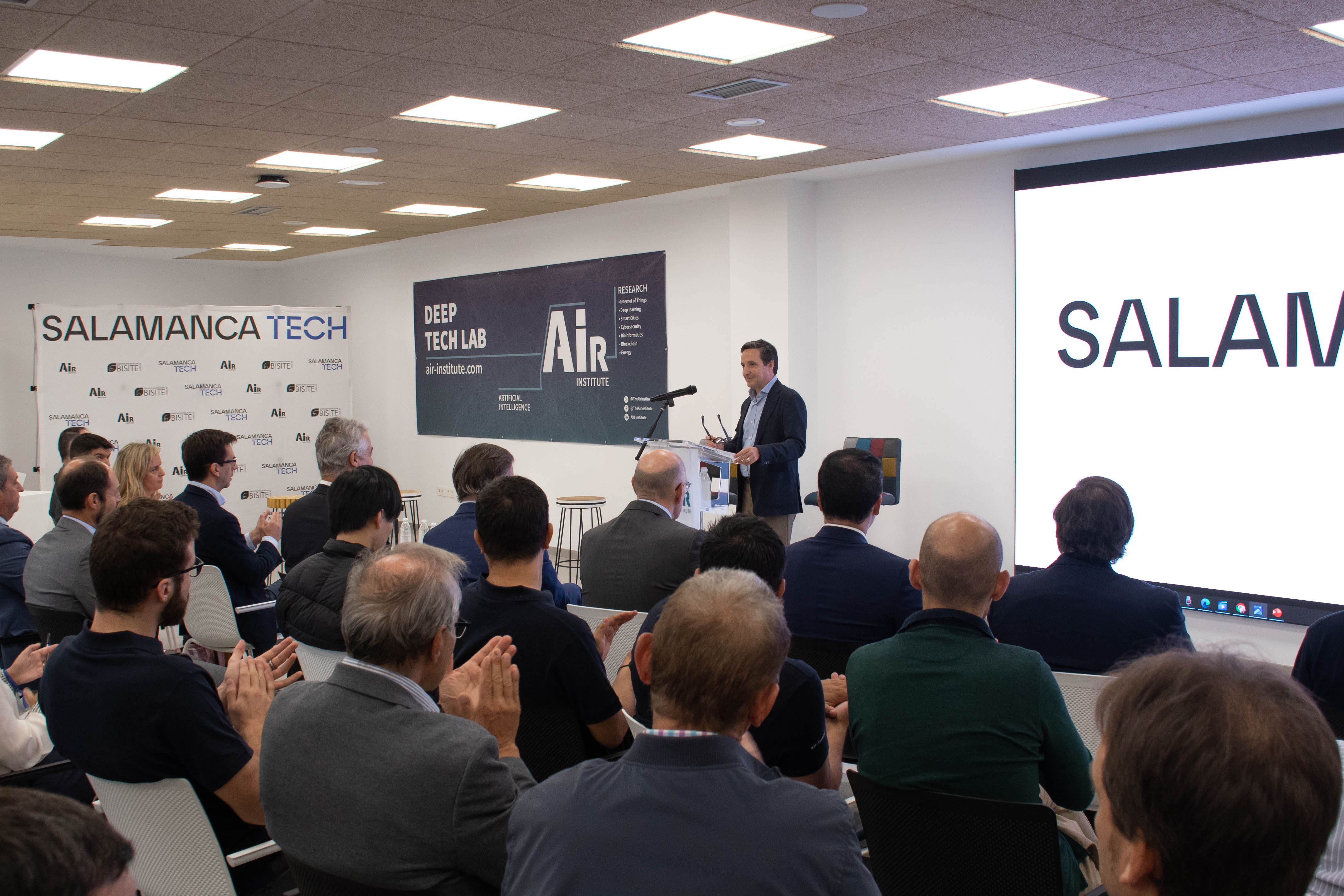
The aeronautical industry is a booming sector that already accounts for 2.5% of GDP and generates around 100,000 direct jobs, according to figures from the College of Aeronautical Engineers (COIAE), according to the speakers at the conference held at the new AIR Institute headquarters. In this regard, Juan Manuel Corchado, President of the Technology Centre and Professor of Computer Science and Artificial Intelligence at the University of Salamanca, stressed the importance of this conference, which reflects the relevance of both the relationship between the BISITE Research Group and Airbus and the projects they are jointly developing, not only in economic terms, but also in terms of the exchange of knowledge between the group and the company. Artificial Intelligence is behind many of the big companies and in this case, it is a big bet for Airbus. "The fact that this company has placed its trust in us and that our relationship has continued over the last few years is a source of pride and a constant incentive to continue working along these lines, based on processes and products of high quality and added value. In addition, this relationship has allowed us to promote relations with other technology companies which have been encouraged by the fact that our early-stage centre already has senior researchers in the field of AI and is collaborating with Airbus", emphasised Juan Manuel Corchado.
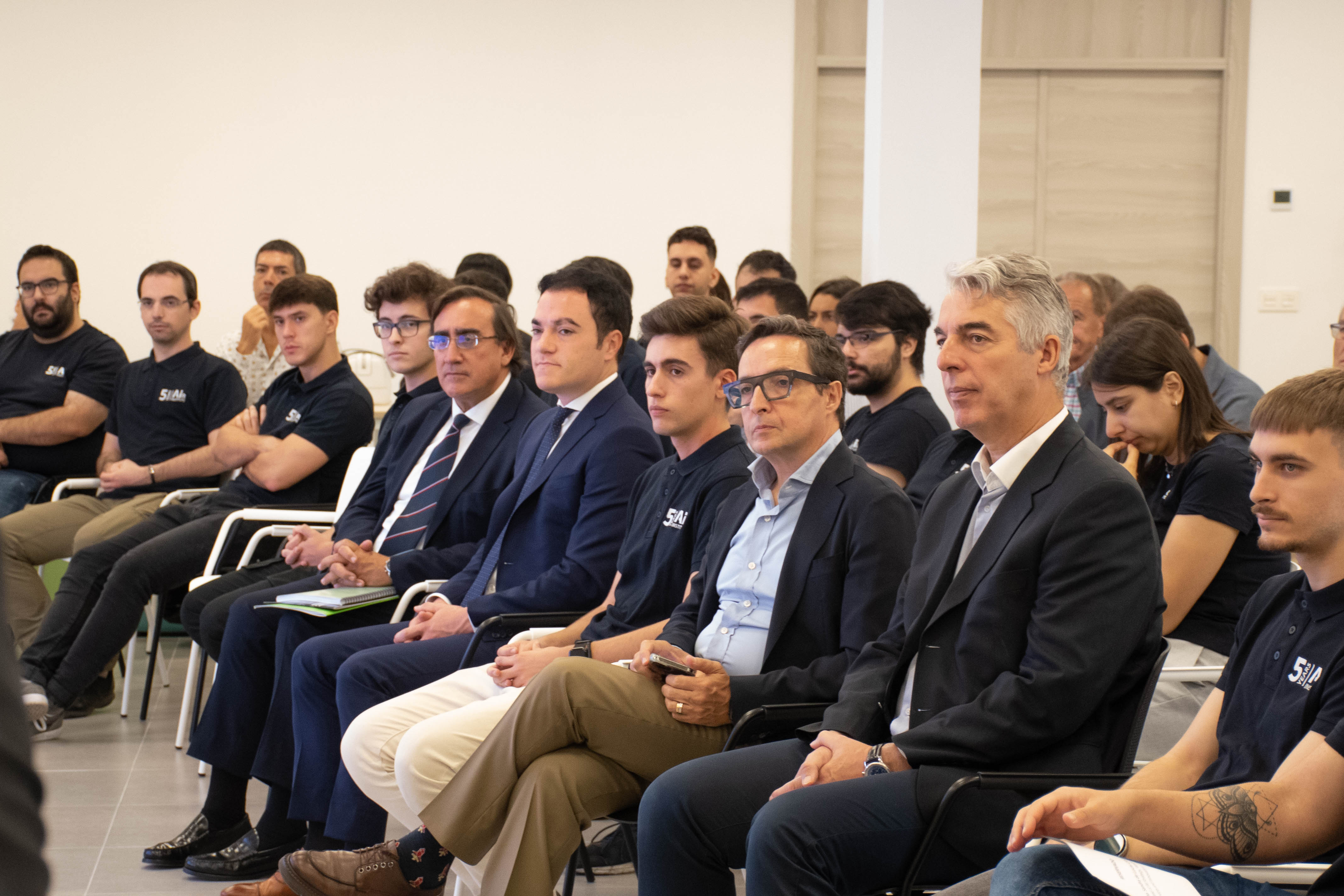
Airbus and its close relationship with the University and the AIR Institute
Bertrand Masson, Vice President of Airline Sciences - Airbus, gave the first lecture with the title "Digitalisation and Technological Initiatives in the Aeronautical Industry: Focus on Design and Market Analysis". During his speech, he highlighted how positive it is to see that "the University of Salamanca continues to innovate" and was proud of his collaboration with AIR Institute, saying he was very happy to see "so much capacity and young talent". From a technical point of view, he focused on the use of digital twins used by Airbus to analyse aircraft performance and better understand certain parameters such as fuel consumption or engine efficiency, which allows to achieve the objectives of reducing emissions and fuel consumption.
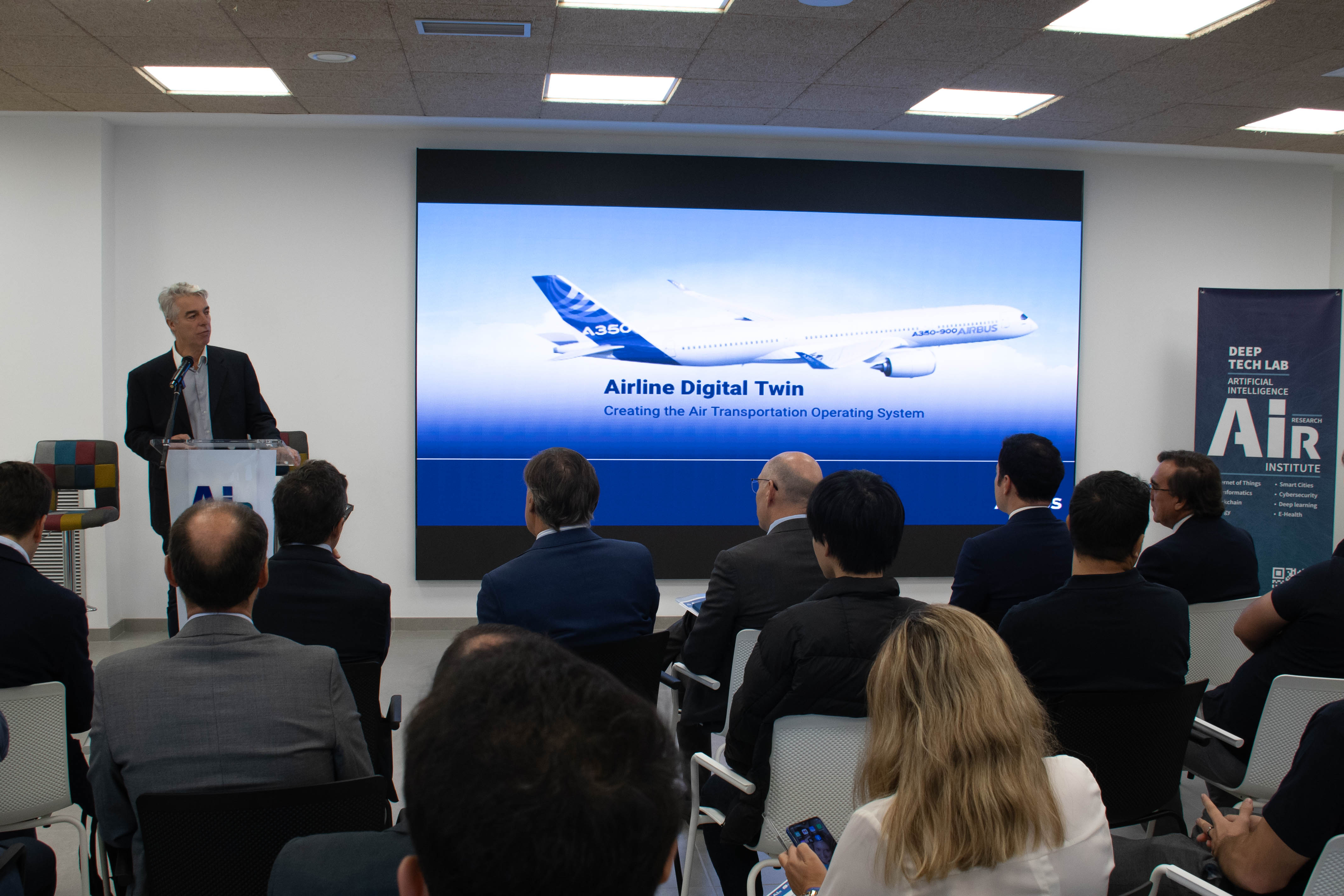
Aciturri Tech, a family company immersed in digitalisation
For his part, the Director of Aciturri Tech, a family company based in Miranda de Ebro with a 46-year history, focused his speech on "digitalisation as a key part of technological initiatives in aeronautical manufacturing". He described two of the company's success stories. On the one hand, how the intelligent automation of processes has reduced working time by 34,000 hours in less than two years, which has resulted in a greater retention of talent, the growth of its professionals and the development of a value chain. Secondly, how the experience served to create Aciturri Tech, a spin-off specialising in technology consultancy that offers its clients, both in the aerospace sector and others, a digital transformation strategy with customised solutions that guarantee the efficient and effective implementation of advanced technologies such as automation and artificial intelligence. "We bring highly innovative solutions to a world we know very well, such as the business world," added Carlos Noriega.
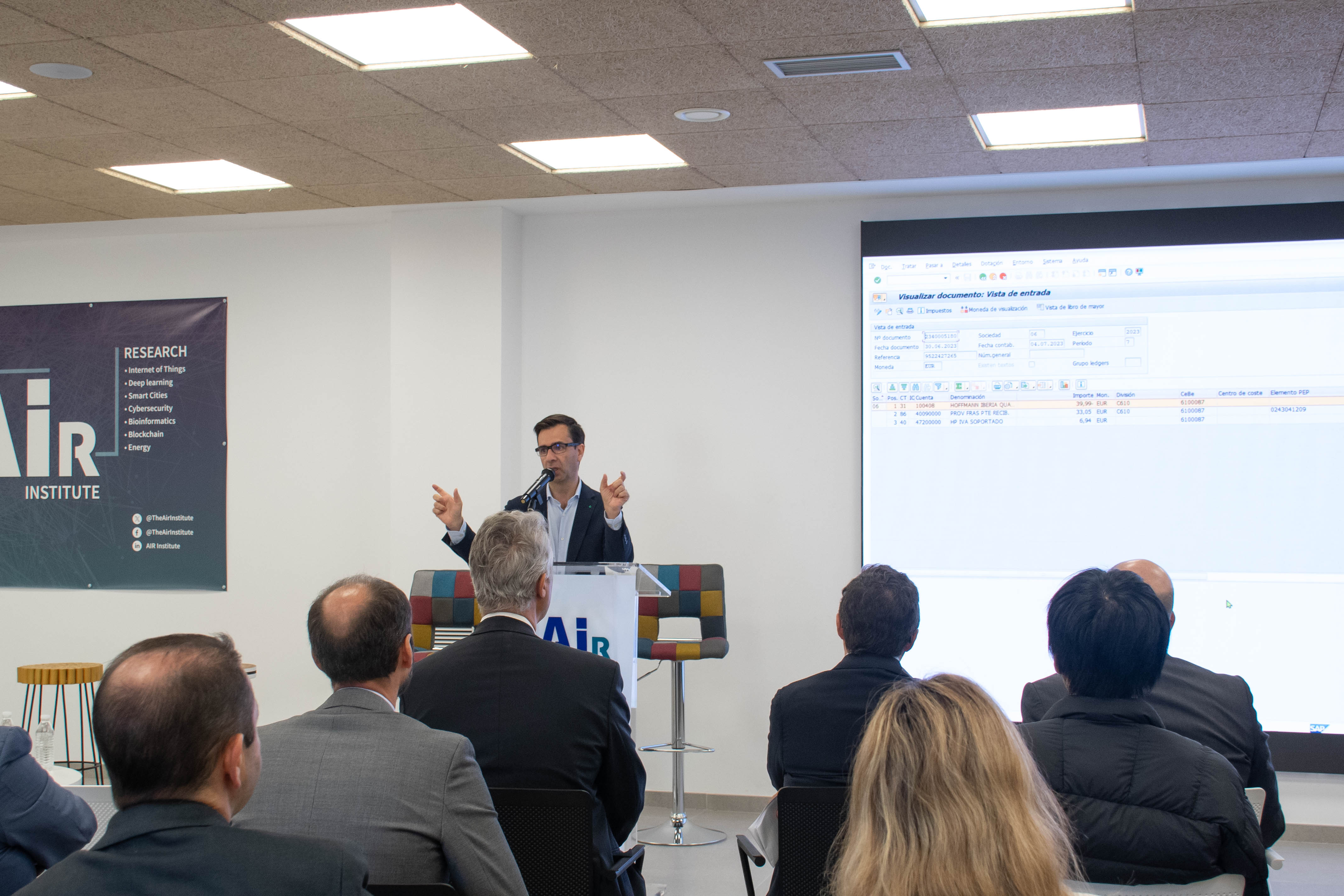
Innovation, financing and artificial intelligence in the round table discussion
The conference ended with the round table "technology in the aeronautical industry, cybersecurity and innovation", moderated by Carlos Martín Tobalina, Deputy Minister of Economy and Finance of the Junta de Castilla y León, with the participation of Sandra de Lucas, Head of IM Strategy Worldwide Services and Innovation of Airbus; Jerónimo Vicente Escolano, FTE/USA Test Pilot - Skydweller Aero; José Alfredo González Ochoa, Business Development Defense/Aereo - CTIngenieros España; and Carlos Noriega, Director of Aciturri Tech. They discussed topics such as innovative projects applied to aeronautics, the impact of digitalisation, financing with European funds, the advancement of artificial intelligence and the position of Salamanca and Castilla y León in the industry.
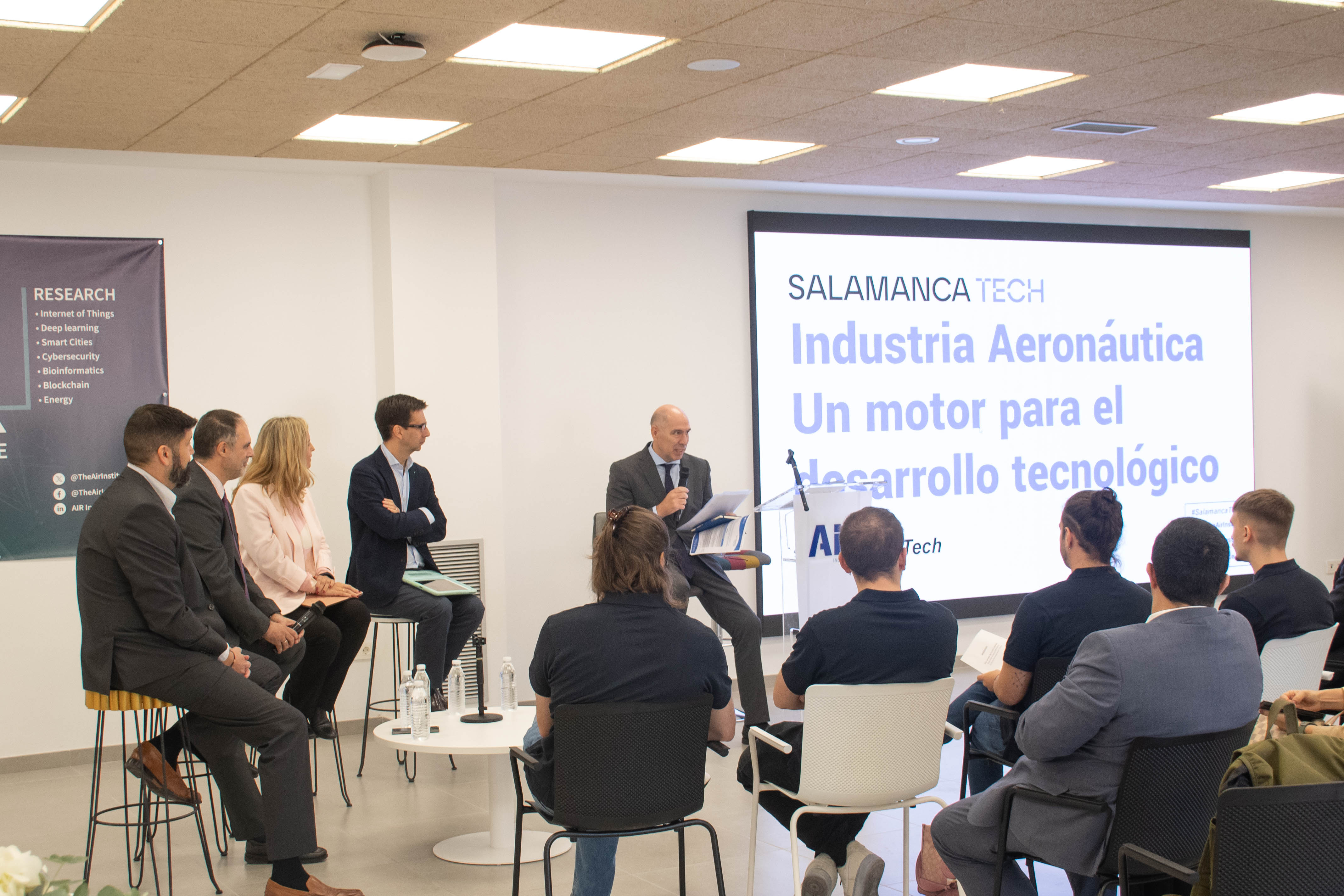
Sandra de Lucas stressed that working in collaboration with universities and research centres such as the AIR Institute is essential for Airbus to achieve its objectives, such as the commitment to reduce product emissions by 46%. Its current lines of research include decarbonisation, autonomous flight and industry 4.0, "but we are not forgetting artificial intelligence because anyone who does not adopt it will be out of the market in the coming months, although we are working on the ethical side of AI and we are involved in its future and necessary regulation".
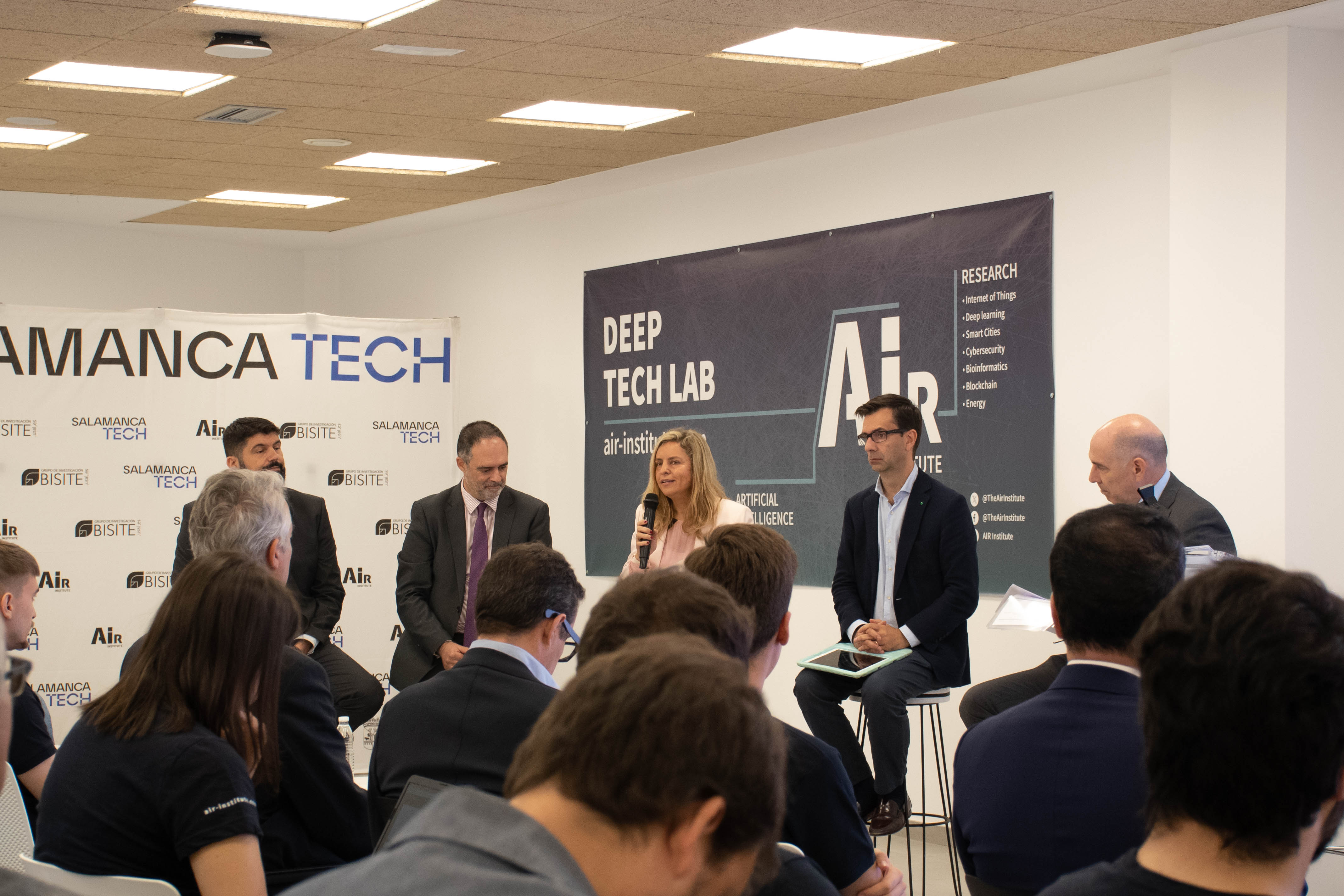
For his part, Jerónimo Vicente Escolano acknowledged that the future lies in the implementation of autonomous systems in aircrafts and was convinced that in five years' time, advances in the field of hydrogen will solve the current limitations of lithium batteries. In addition, the Skydweller Aero representative pointed out that the importance of AI in the field of unmanned aircraft, "it is one of the great advances and the use of Big Data also offers many possibilities," he added.
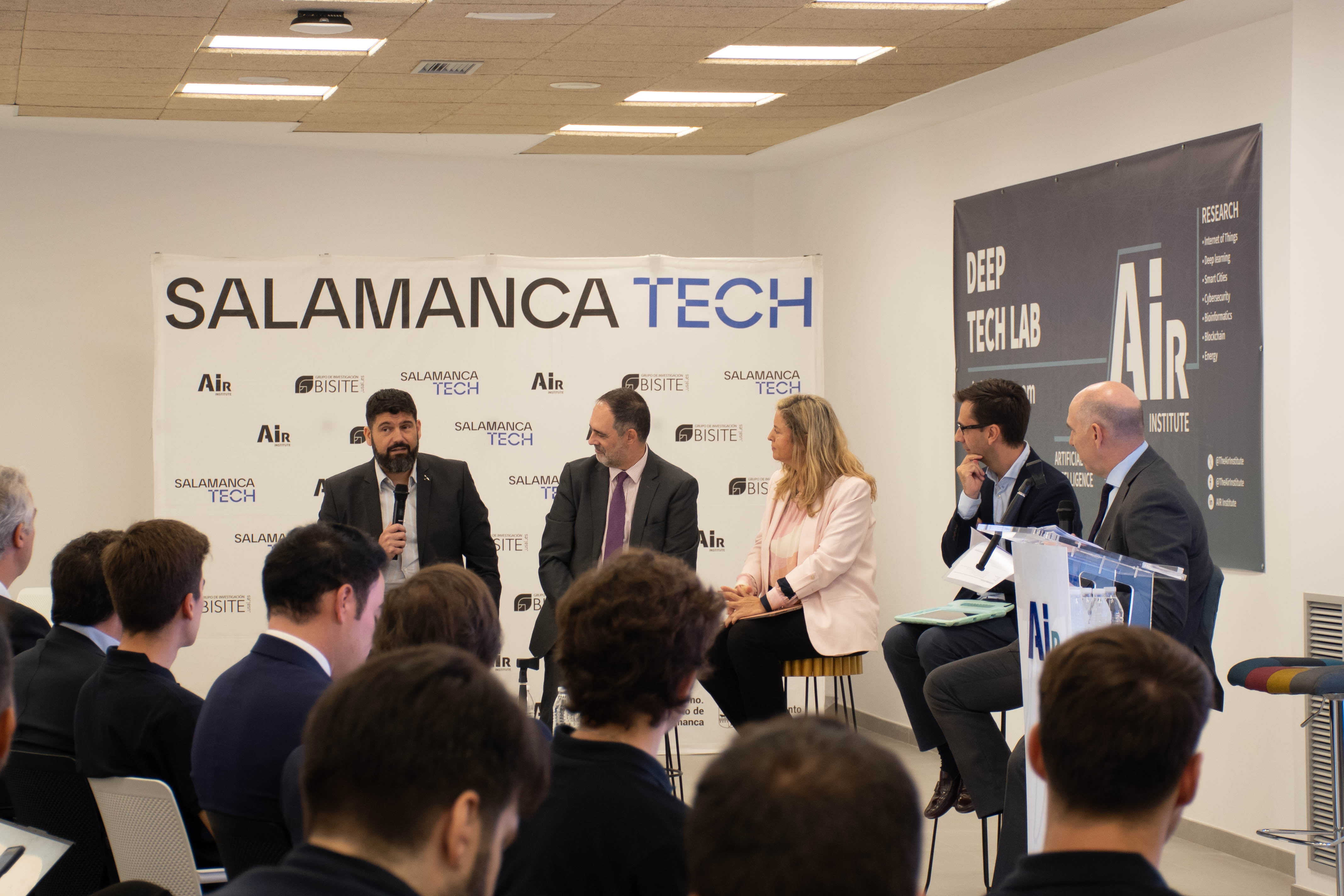
In this regard, José Alfredo González said "we are making a significant effort at CT Ingenieros to manufacture aircraft faster by developing thermoplastic welding techniques". As for financing, he assured that "the funds are out there, but we have to seek them and know how to spend them appropriately". Finally, he emphasised the growing opportunities offered by Castilla y León and the options for carrying out projects on a business and institutional level.
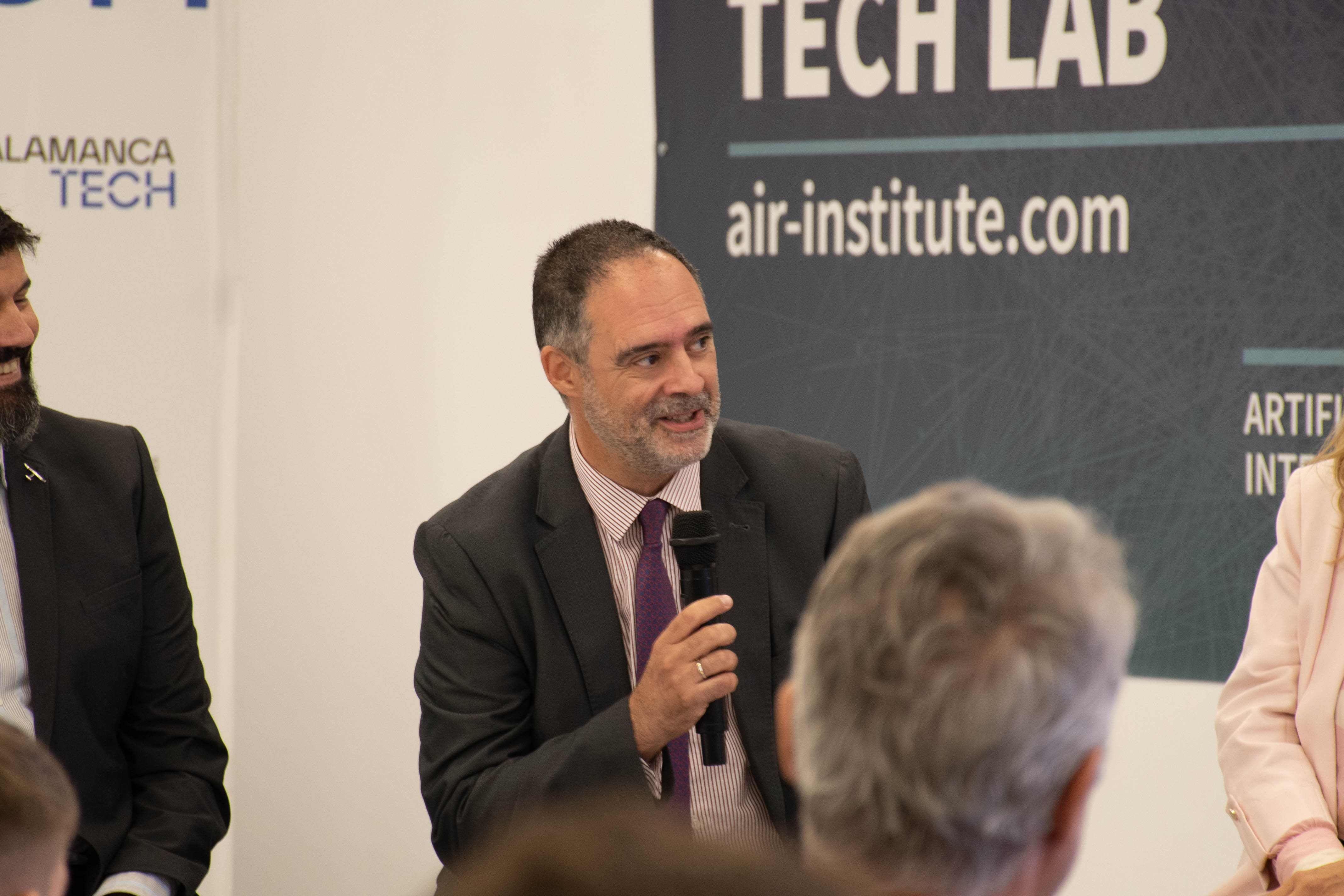
In addition, Carlos Noriega, Director of Aciturri Tech, who also participated in the round table, reiterated the firm commitment of this company to Castilla y León and confessed the value that AI has for him: "We are already testing with private generative AI and, personally, I use it and it is very useful for me". He also highlighted the value of artificial intelligence in predicting machine failures.
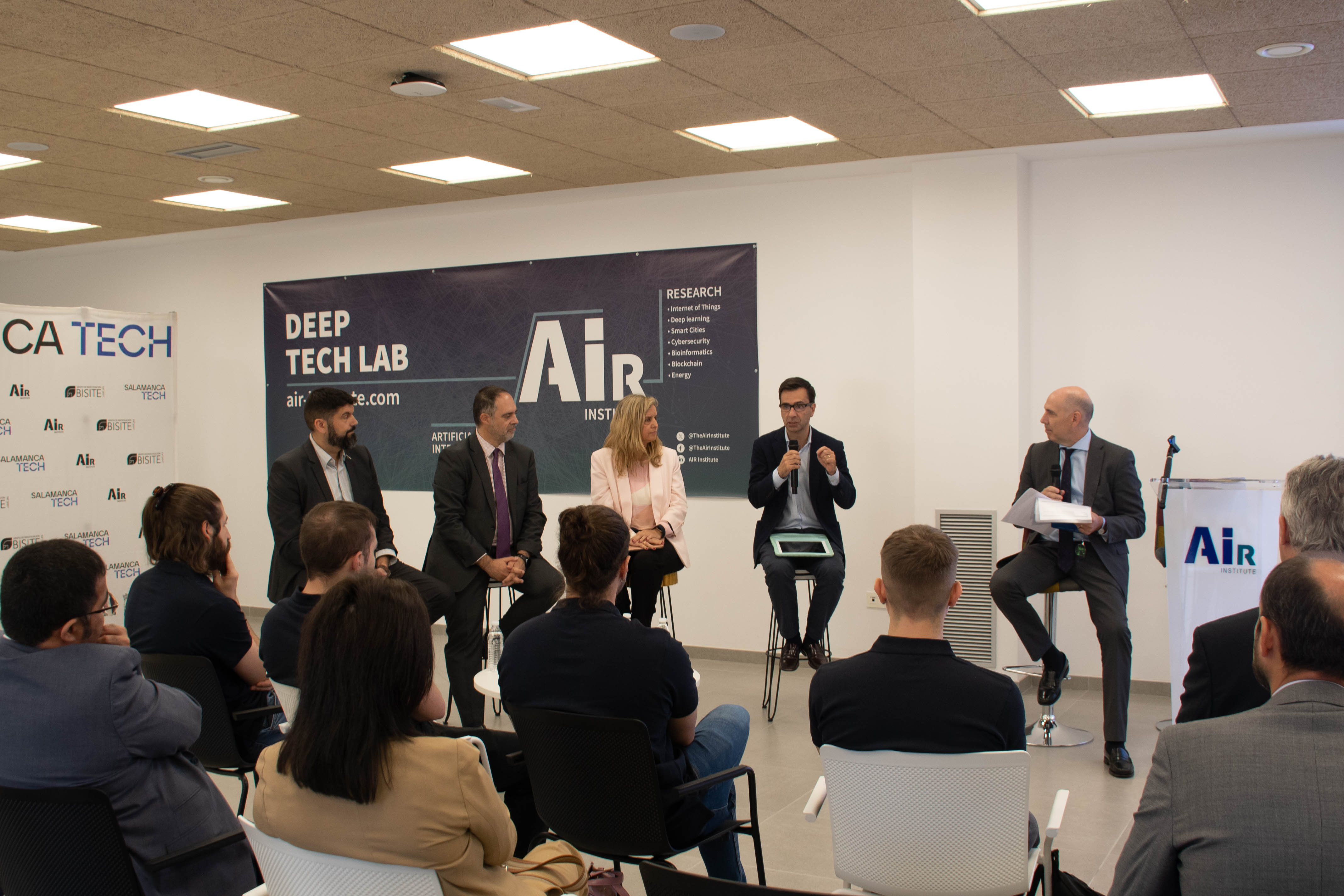
The moderator of the round table, Carlos Martín Tobalina, concluded by emphasising how an adequate ecosystem has been created in Castilla y León over the last few years for business development: "There is a lot of talent and the Junta is available to carry out different projects, especially in Salamanca". In terms of artificial intelligence, he assured that AIR Institute is already a reference in the region and hopes that "it will continue to consolidate its position at a national level".
